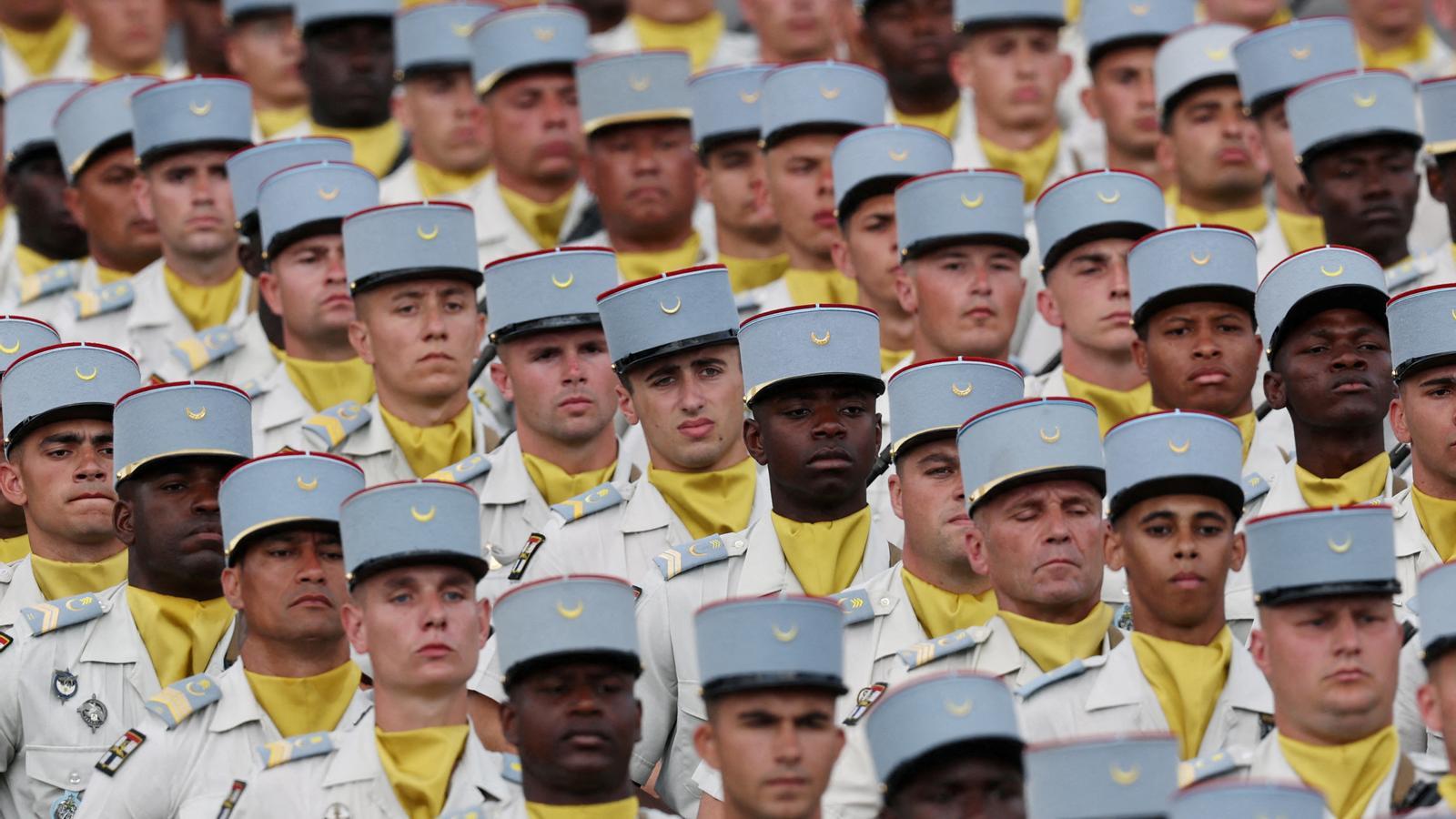Laser tag and virtual reality to encourage young people to join the military
France launches a mandatory interactive military course for young people aged 16 to 25.


ParisGiven the complex geopolitical context, France is looking to strengthen its military. After ruling out reintroducing compulsory military service, the government has announced another initiative: a mandatory training course for all young people between the ages of 16 and 25 to learn what a soldier's job is like. Starting in September, boys and girls with French nationality will be required to participate in the course, which will begin with a patriotic act: the raising of the flag while singing. The MarseillaiseThe Ministry of Defense believes the activity can serve to awaken vocations and recruit future soldiers.
Throughout the day, participants will engage in various activities to experience life in the army, but without real weapons: they will learn to shoot with laser guns, play strategy role-playing games, virtual reality simulations, and eat as if they were on a mission, with a military ration. At the end of the day, they will leave with a pin of the Blauet de France, a blue flower that symbolizes memory and solidarity with war veterans and victims of conflicts.
Since France abolished compulsory military service in 1998, there has been a day for all young people—reputed to be soporific—that has evolved over the years. Initially, it was a talk by military commanders to explain the work the army does, and later, it was modified to include lectures on citizenship, which addressed issues such as equality and civic responsibility. In any case, it has always been a mandatory procedure for French citizens: the document certifying completion of the course is required to obtain a driver's license or to take the BAC exam, the equivalent of the university entrance exam.
The big news is that the course, until now known as the Defense and Citizenship Day, is evolving into an "interactive" day clearly aimed at recruiting soldiers and reservists. The government wants it to attract young people, to be a "bridge" to military training. Some 800,000 French people between the ages of 16 and 25 will undergo this experience each year.
France, like Spain and other European countries, plans to increase its number of soldiers in the coming years to confront new threats. In his last speech to the army, on July 13, the French president reiterated that Europe is "in danger" due to the "permanent" threat from Russia and warned that the country needs to strengthen its military. "We need a nation capable of resisting, of mobilizing. To be free, you must be feared; to be feared, you must be powerful," the president insisted to the French army.
It's a huge challenge considering that fewer and fewer young people are willing to become soldiers, and that since 2010, the birth rate in France has plummeted. The government fears that within a decade it will be more difficult to maintain or increase the size of the army, which is one of the largest in the European Union. The country currently has around 200,000 active-duty soldiers and 47,000 reservists.
Voluntary military service
To expand the army, France is also considering introducing voluntary military service. Bringing back compulsory military service is not an option—according to the French government, there is insufficient infrastructure—but voluntary military service would help increase the number of reservists, who would not become active soldiers but could be mobilized in the event of a crisis. The country aims to reach 80,000 reservists by 2030, almost double the current number.
Macron already attempted to reinstate voluntary military service with what he called "universal national service," but the initiative has never fully taken off and currently only welcomes teenagers during the summers. "It has become an educational project and has turned into a summer camp," he explains. Le FigaroNow, the President of the Republic wants voluntary military service to be geared toward training reservists and be exclusively for military training.
The idea is yet to be finalized, but according to the same newspaper, between 10,000 and 50,000 young people could participate each year in voluntary military service, which would last two months. "I think we must give young people a new framework to serve in other ways within our armies," Macron said in the same speech. Currently, reservists—voluntary citizens—have renewable contracts of between one and five years and serve the army for a maximum of 60 days a year, although the average is 20 days. In the event of a crisis, they could be sent on missions abroad.
Criticism from students
Macron's military plans have drawn criticism from young people, especially from student associations, who have particularly complained about the new mandatory military service. "These announcements represent a serious setback," he warned, adding that the French government's proposals "go against the aspirations of young people" and are far removed from their real, everyday concerns, such as job insecurity, access to university, and peace in Ukraine.
